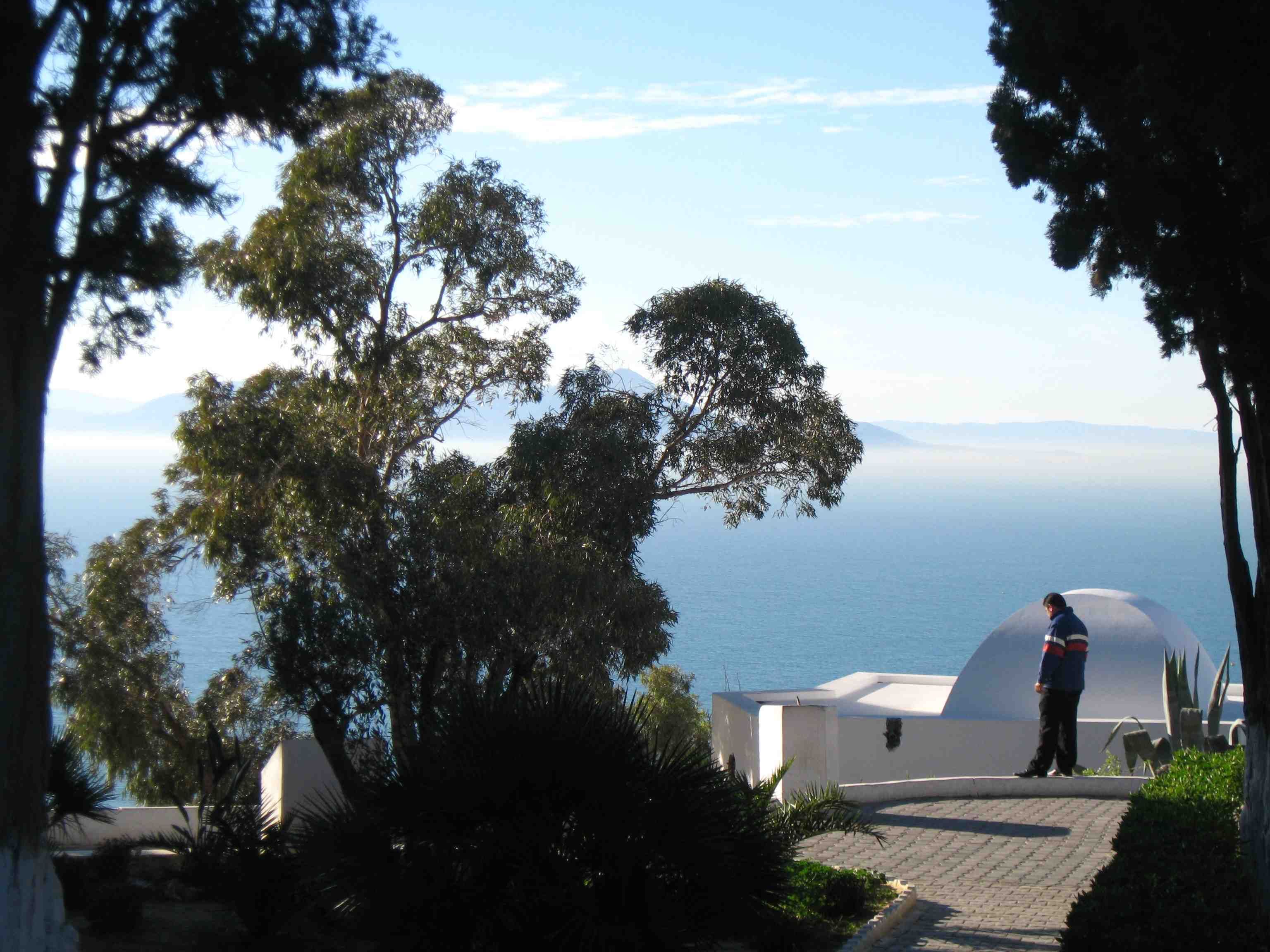After days of gray skies, it was a beautiful morning in Tunis. Along the Mediterranean coast where the high-walled mansion of newly deposed president Zine al-Abidine Ben Ali sprawled across a hill, the green crowns of palm trees shone in the sun as if they had been washed and waxed. Bougainvillea spilled over white villa walls. Sky met sparkling sea at the horizon in a competition for loveliest shade of blue.
But Ben Ali was not there to see it.
"No, Ben Ali, he is in Saudi Arabia," a 43-year-old cab driver, Mohammed Ali, said as he drove past the looted mansion, now secured by guards. Ali smiled, enjoying the thought of his ousted leader at his new home in desert sand.
Though the city remained under curfew, life in Tunis, Tunisia's capital, was edging back to normal after the Tunisian people carried out the first popular revolution in the Arab world. Their uprising drove Ben Ali into exile after 23 years in power. On Saturday, protesters encouraged by Tunisia's example rallied in Egypt and Yemen, demanding their own countries' leaders – both of them in power about three decades – step down. At least 55 people were reported to have died in the first week of Egypt's protests.
In Tunis, Prime Minister Mohammed Ghammouchi's mid-week firing of several Cabinet ministers originally appointed by Ben Ali seemed to assuage public demands that all members of the ex-president's political party be purged from the interim government. What had been a month of daily demonstrations eased in Tunis's downtown.
Late last week, police routed a final group of protesters outside the stone gates of the city's old market. The removal allowed customers and merchants to return to the souk. On Saturday, laborers restocked shops and cafes, rolling wheelbarrows laden with boxes past the market's gates, now scribbled with spray-painted initials of political parties and unions. The wheels of the barrows crunched over pebbled remnants of car windshields that had been smashed in the protests.
Armored vehicles surrounded by razor wire were parked on the grass of the tree-lined medians of downtown. On the sunny morning, the military vehicles were a reminder of how close to danger Tunisians remained in their new start. But this morning, the streets of downtowns were filled with office workers and shop clerks headed to work, not to demonstrations.
"It's going well,'' a woman with streaked hair and tailored brown leather jacket said, rolling up the metal shutter of the optician's shop where she worked. She was happy with the interim government, optimistic about what came next. "But we do need business," she added, uneasily. Indeed, businesspeople were starting to worry about the absence of tourists and other customers, scared off by the month of violence.
The United Nations estimates about 100 people died in demonstrations that erupted when a young fruit vendor, frustrated by bribe-seeking police, set himself on fire in a Tunisian farm town.
Hard work remained for Tunisians, and nothing was sure. A wave of strikes and labor disputes in Tunisia – launched as the revolution emboldened workers and showed them the power of collective action – was leaving many workers off the job, and uncertain if they still had employment. Tunisia must now move forward to elections. It must find a way to lure back tourists and foreign investors, and it also needs to figure out its place in the region, where many autocratic governments wished their revolution ill.
"In my heart, I feel pride," the optical-shop worker said, patting her breastbone. She paused. "What we did was important." (Asked her name, she gave a card that turned out to belong to the male shop owner.)
Tunisian radio stations continued playing songs of celebration. In Ali's cab, the radio poured out crooning Arabic ballads to Tunisia; a Spanish anthem to Che Guevara, who is as popular with Tunisian young people as he is with some U.S. ones; an American pop song about how it was going to be a bright, bright, bright, sunshine-y day.
In his cab, Ali turned around in the front seat to make eye contact with his passenger. "Did you see Egypt?" he demanded, still smiling. "The revolution has started."
He gestured toward Ben Ali's mansion, guarded by thick, gilded gates.
"The presidents, the kings, they thought they would have this all for life," he said. "They thought they would pass it on to their children.
"Now, all that has changed," Ali said.
